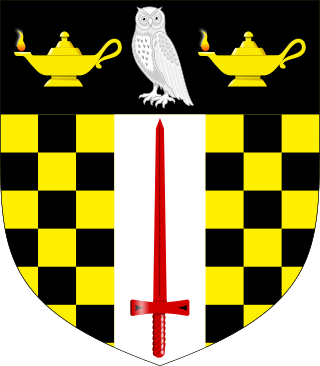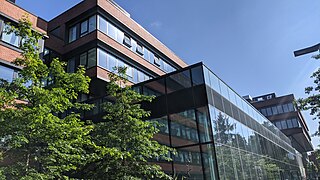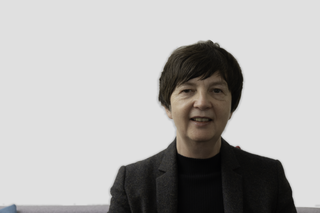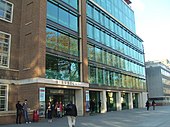
The UCL Institute of Education (IOE) is the faculty of education and society of University College London (UCL). It specialises in postgraduate study and research in the field of education and is one of UCL's 11 constituent faculties. Prior to merging with UCL in 2014, it was a constituent college of the University of London. The IOE is ranked first in the world for education in the QS World University Rankings, and has been so every year since 2014.

Birkbeck, University of London, is a research university located in the Bloomsbury neighborhood of London, England, and a member institution of the University of London. Established in 1823 as the London Mechanics' Institute by its founder Sir George Birkbeck and its supporters- Jeremy Bentham, J. C. Hobhouse and Henry Brougham- Birkbeck is one of the few universities to specialise in evening higher education in the United Kingdom.
The Engineering and Physical Sciences Research Council (EPSRC) is a British Research Council that provides government funding for grants to undertake research and postgraduate degrees in engineering and the physical sciences, mainly to universities in the United Kingdom. EPSRC research areas include mathematics, physics, chemistry, artificial intelligence and computer science, but exclude particle physics, nuclear physics, space science and astronomy. Since 2018 it has been part of UK Research and Innovation, which is funded through the Department for Business, Energy and Industrial Strategy.
Geraint Ellis Rees is Vice-Provost of research, innovation & global engagement at University College London (UCL). Previously he served as Dean of the UCL Faculty of Life Sciences, UCL Pro-Provost, Pro-Vice-Provost (AI) and a Professor of Cognitive Neurology at University College London. He is also a Director of UCL Business, a trustee of the Alan Turing Institute, a trustee of the Francis Crick Institute and a trustee of the Guarantors of Brain.

John Naughton is an Irish academic, journalist and author. He is a senior research fellow in the Centre for Research in the Arts, Social Sciences, and Humanities at Cambridge University, Director of the Press Fellowship Programme at Wolfson College, Cambridge, Emeritus Professor of the Public Understanding of Technology at the British Open University, adjunct professor at University College, Cork and the Technology columnist of the London Observer newspaper.
The Centre for Reviews and Dissemination (CRD) is a health services research centre based at the University of York, England. CRD was established in January 1994, and aims to provide research-based information for evidence-based medicine. CRD carries out systematic reviews and meta-analyses of healthcare interventions, and disseminates the results of research to decision-makers in the NHS.

The UK Data Archive is a national centre of expertise in data archiving in the United Kingdom. It houses the largest collection of social sciences and population digital data in the UK. It is certified under CoreTrustSeal as a trusted digital repository. It is also certified under the international ISO 27001 standard for information security. Located in Colchester, the UK Data Archive is a specialist department of the University of Essex, co-located with the Institute for Social and Economic Research (ISER). It is primarily funded by the Economic and Social Research Council (ESRC) and the University of Essex.

Manchester Institute of Innovation Research (MIoIR) is a research institute based in Alliance Manchester Business School at the University of Manchester, UK. MIoIR is a centre of excellence in the fields of innovation studies, technology management and innovation management, science policy, technology policy, innovation policy and regional innovation, the study of emerging technologies, responsible research and innovation, and research into socio-technical transitions with a focus on sustainability and digital transitions. MIoIR has also been known for research on service innovation and in particular the definition and early exploration of the concept of knowledge-intensive business services, through the work of scholars such as Ian Miles and Bruce Tether.

The Teaching and Learning Research Programme (TLRP) was the United Kingdom's largest investment in education research. It was initiated in 2000, ended in 2011 and was managed on behalf of the Higher Education Funding Councils by the Economic and Social Research Council. The programme engaged 700 researchers in some 70 major projects. These covered all education sectors - from Early Years to Higher Education and Workplace Learning. The TLRP researchers work closely in partnership with practitioners to ensure the relevance and application of findings to policy and practice. Thematic work across the diverse range of projects enabled analysis of themes and the identification of 'ten principles for effective teaching and learning'.
David Seymour Latchman CBE is a British geneticist and university administrator. From 2003 to 2023 he has been Vice-Chancellor of Birkbeck, University of London, and since 1999 professor of genetics at University College London.
The Rix Centre is a British charitable research and development centre that was founded in 2004. The Centre, based at the University of East London, explores the uses of new media technology for the benefit of the learning disability community. It has developed multimedia technologies and courses to support those with learning disabilities and their careers.

Geoffrey Nigel Gilbert is a British sociologist and a pioneer in the use of agent-based models in the social sciences. He is the founder and director of the Centre for Research in Social Simulation, author of several books on computational social science, social simulation and social research and past editor of the Journal of Artificial Societies and Social Simulation (JASSS), the leading journal in the field.

The Francis Crick Institute is a biomedical research centre in London, which was established in 2010 and opened in 2016. The institute is a partnership between Cancer Research UK, Imperial College London, King's College London (KCL), the Medical Research Council, University College London (UCL) and the Wellcome Trust. The institute has 1,500 staff, including 1,250 scientists, and an annual budget of over £100 million, making it the biggest single biomedical laboratory in Europe.
The UCL Faculty of Engineering Sciences is one of the 11 constituent faculties of University College London (UCL). The Faculty, the UCL Faculty of Mathematical and Physical Sciences and the UCL Faculty of the Built Envirornment together form the UCL School of the Built Environment, Engineering and Mathematical and Physical Sciences.

Geoffrey David Price has been Vice-Provost (Research) of UCL since 2007 and Professor of Mineral Physics in the UCL Department of Earth Sciences since 1991. Price has been responsible for promoting, supporting and facilitating UCL research, including securing the highest-quality research outputs across UCL, and leading the development and implementation of the UCL Research Strategy.
The UK Data Service is the largest digital repository for quantitative and qualitative social science and humanities research data in the United Kingdom. The organisation is funded by the UK government through the Economic and Social Research Council and is led by the UK Data Archive at the University of Essex, in partnership with other universities.
The Centre for Advanced Spatial Analysis (CASA) is a research centre at University College London (UCL), which specialises in the application and visualisation of spatial analytic techniques and simulation models to cities and regions. It is a constituent department of The Bartlett Faculty of the Built-Environment.

The Centre For Macroeconomics (CFM) is a research centre in London dedicated to the investigation and development of new methodologies and research in order to inform economic policy decisions. It also focuses on ways to alleviate the effects of the global economic crisis through its careful study. The CFM is funded by the Economic and Social Research Council (ESRC), and was founded in 2012. It is one of the larger research centers in the world dedicated to the study of financial crises.
The Department of Information Studies is a department of the UCL Faculty of Arts and Humanities.

Allison Littlejohn, FHEA, is Professor of Learning Technology at University College London. She is a director of University College London's knowledge lab and an expert in learning sciences, specialising in professional and digital learning.











